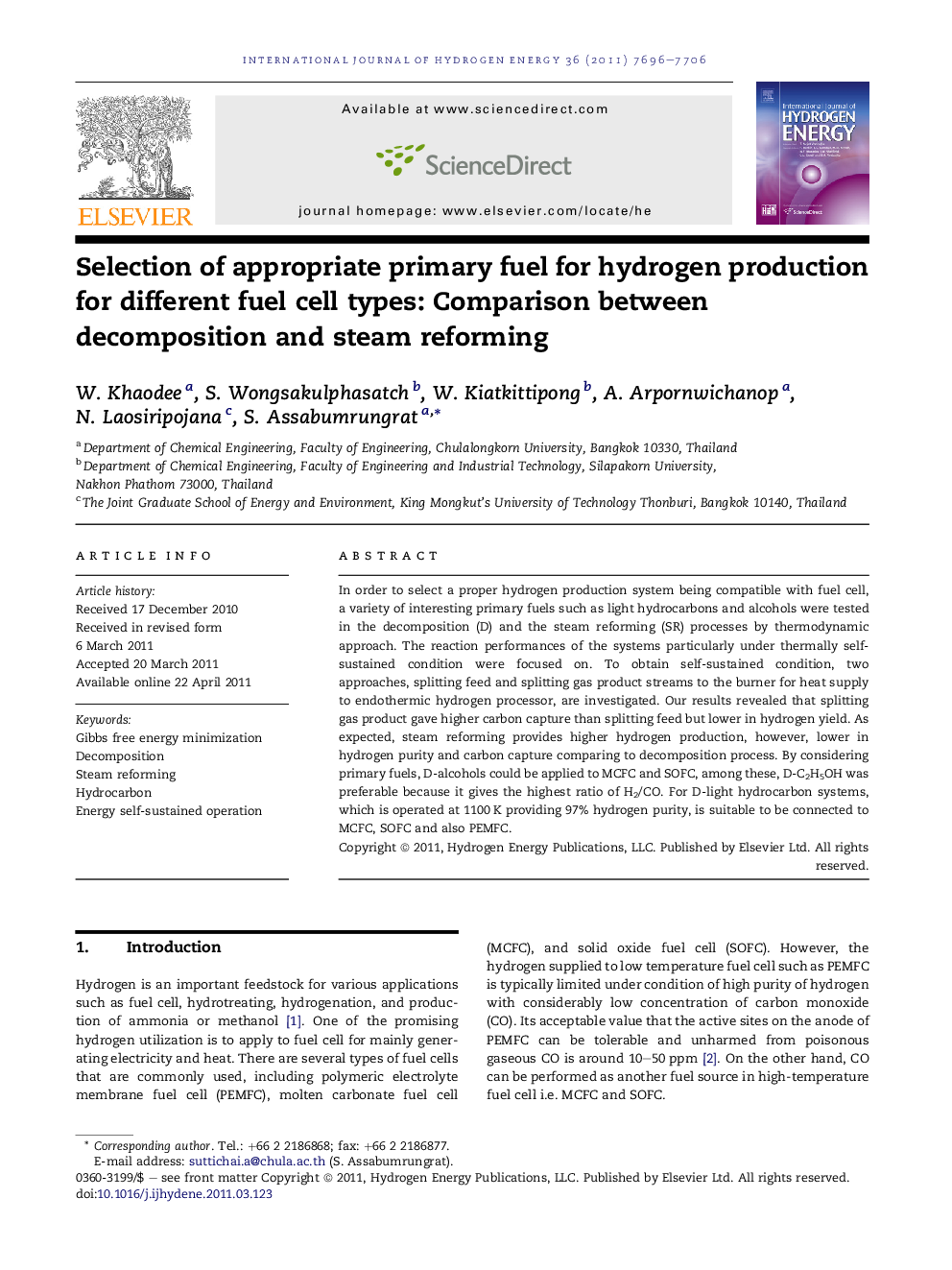| Article ID | Journal | Published Year | Pages | File Type |
|---|---|---|---|---|
| 1279299 | International Journal of Hydrogen Energy | 2011 | 11 Pages |
Abstract
In order to select a proper hydrogen production system being compatible with fuel cell, a variety of interesting primary fuels such as light hydrocarbons and alcohols were tested in the decomposition (D) and the steam reforming (SR) processes by thermodynamic approach. The reaction performances of the systems particularly under thermally self-sustained condition were focused on. To obtain self-sustained condition, two approaches, splitting feed and splitting gas product streams to the burner for heat supply to endothermic hydrogen processor, are investigated. Our results revealed that splitting gas product gave higher carbon capture than splitting feed but lower in hydrogen yield. As expected, steam reforming provides higher hydrogen production, however, lower in hydrogen purity and carbon capture comparing to decomposition process. By considering primary fuels, D-alcohols could be applied to MCFC and SOFC, among these, D-C2H5OH was preferable because it gives the highest ratio of H2/CO. For D-light hydrocarbon systems, which is operated at 1100Â K providing 97% hydrogen purity, is suitable to be connected to MCFC, SOFC and also PEMFC.
Related Topics
Physical Sciences and Engineering
Chemistry
Electrochemistry
Authors
W. Khaodee, S. Wongsakulphasatch, W. Kiatkittipong, A. Arpornwichanop, N. Laosiripojana, S. Assabumrungrat,
